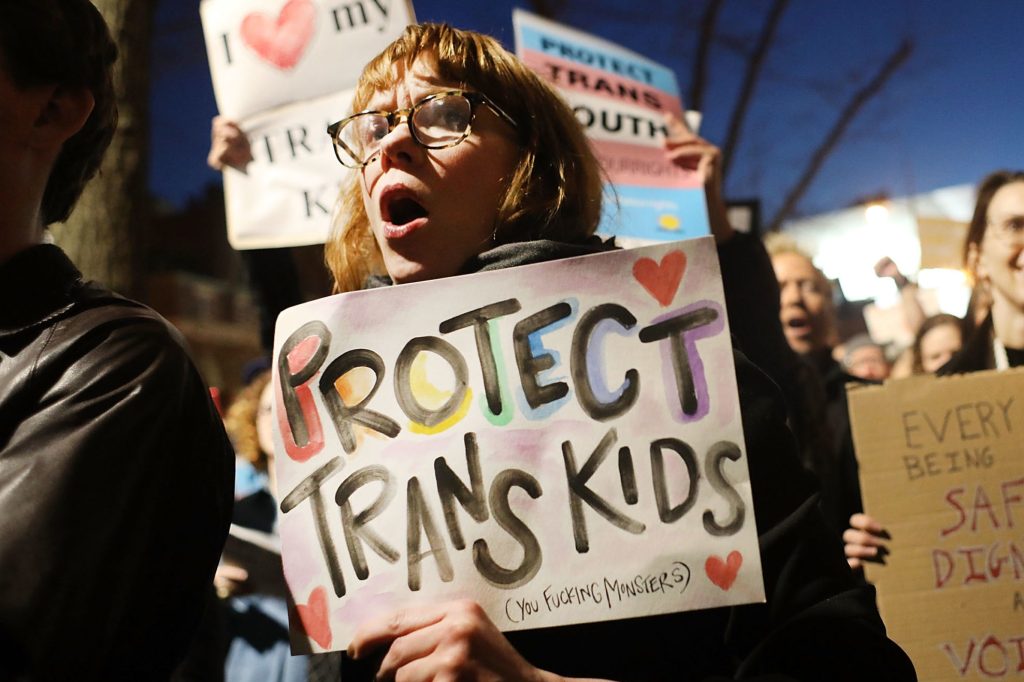England’s National Health Service made the major announcement last week that they would limit the prescription of puberty-blocking drugs for transgender children to clinical trials.
A report released by the NHS on June 9 states that “there is not enough evidence to support their safety or clinical effectiveness as a routinely available treatment and that they should only be accessed as part of research.”
The decision is the latest consequence of a multi-year review into how the medical community in England should treat children who suffer from gender dysphoria. The NHS launched the review in response to skyrocketing numbers of children seeking care for gender distress, particularly young females, the rise of gender dysphoric patients with coexisting mental health conditions, and the overall lack of conclusive evidence to dictate best practices.
A previous report led to the impending closure of the Tavistock Centre, a Gender and Identity Development Service (GIDS), due to evidence that the clinic was reflexively affirming children’s stated gender identities while overlooking their other health care issues, such as mental health disorders. Tavistock was also accused of not keeping consistent records and data on the children who received treatments there. A study on Tavistock patients further found that children who went on puberty blockers to treat gender dysphoria did not report better psychological scores. Dr. Hilary Cass, the pediatrician overseeing the NHS review, expressed concern that rather than giving children time to figure out their gender identity, puberty blockers may actually be locking them into a gender transition.
England is not alone in pumping the brakes on gender transitions for minors, a medical practice that has become euphemistically known as “gender-affirming care”.
Finland started advising doctors not to prescribe puberty blockers and cross-sex hormones as a first-line of treatment for gender dysphoric children in 2020. Instead, medical practitioners are told to focus on psychotherapy and only provide medical intervention in limited, extreme cases. Surgical sex changes for minors are banned. The Finnish guidelines note that any benefits of puberty suppression are unproven and may impact brain maturity, thus lessening the ability of young patients to properly consent to subsequent gender treatments.
Sweden was the first country to introduce legal gender reassignment, but in 2019, a report commissioned by the Swedish government reviewed all available studies and ultimately found a lack of evidence for gender transition treatments for minors. Two years later, Sweden’s Karolinska Hospital stopped prescribing puberty blockers and cross-sex hormones entirely. Sweden’s National Board of Health and Welfare later unveiled a similar policy, limiting cross-sex hormones for children to rare cases and surgical intervention to research settings.
Last summer, France urged “great medical caution” in pursuing gender treatments for minors because of the psychological vulnerability of these children and the potentially irreversible side effects of medicines and surgery.
“If France allows the use of puberty blockers or cross-sex hormones with parental authorization and no age limitations, the greatest caution is needed in their use, taking into account the side effects such as the impact on growth, bone weakening, risk of sterility, emotional and intellectual consequences and, for girls, menopause-like symptoms,” the French National Academy said, according to a translation published by National Review.
Further, France noted that there is currently no way to determine which patients have persistent gender dysphoria and which have transient adolescent dysphoria, which typically dissipates post-puberty. This means there is a real “risk of over-diagnosis,” the French National Academy asserts.
And while Norway’s government agency has not made any changes to its policy on gender transitions for minors, the Norwegian Healthcare Investigation Board, an independent body, recommended earlier this year to label puberty blockers, hormone therapy, and surgical sex changes “experimental” or “exploratory” treatments.
The shifting standard of care across Europe is significant because this was the first wave of countries to subscribe to what’s known as the “Dutch Model” or “Dutch Protocol”. The Dutch Model was spurred by a small study of seventy patients in the Netherlands released in 2011 that found “behavioral and emotional problems and depressive symptoms decreased, while general functioning improved significantly” when adolescents who had persistent gender dysphoria underwent puberty suppression.
Despite being lauded as the gold standard of transgender research, the study has several notable drawbacks. First, youth patients who used puberty blockers in the Netherlands also received intense psychotherapy, meaning it’s impossible to distinguish which treatment actually caused the improved mental health outcomes. Second, the participants in the study were chosen retrospectively and non-randomly; the study only evaluated youth who were approved to continue on to cross-sex hormones. Individuals who discontinued treatment for a variety of reasons — including harm from the puberty blockers or a resolution of their gender dysphoria — were excluded from the analysis, which skewed the results. The study also relied on a flawed questionnaire to make the claim that gender dysphoria improved among participants.
Also important is that the Dutch study did not weigh whether the perceived benefits to a dysphoric youth’s mental health outweighed the negative physical side effects. One subject was excluded from the study because they died from a failed vaginoplasty.
Aside from all of these issues with the research, Dutch gender experts have warned that their model cannot be applied properly without a strict assessment of patients. In the Netherlands, minors who receive medical intervention for gender distress must have had persistent dysphoria since before puberty, must be free of other psychiatric issues, and must have the support of their families. The author of the infamous Dutch study has even said her research likely does not apply to the large number of teens seeking sex changes today.
Everyone seems to be embracing the wave of caution on medical treatment of gender dysphoric minors — except for the United States. Transgender activists, the American Medical Association, and the American Academy of Pediatrics suggest that delaying or prohibiting “gender-affirming care” will lead to suicides of transgender youth. Puberty blockers and cross-sex hormones have been described as “life-saving” by these bodies.
More than twenty Republican-led states in the US have pushed back on the trend by passing legislation limiting medical intervention for transgender youth. President Joe Biden referred to politicians who seek to ban gender transitions for minors as “hysterical” and “prejudiced.” His administration has refused to comment on England’s NHS banning puberty blockers outside of clinical research.
In an extreme example, a recently amended California bill would classify it as “child abuse” if a parent refuses to affirm their child’s gender identity. Affirmation of a child’s gender would thus be used as a factor when judges are determining family custody arrangements. The bill does not provide specifics on whether a parent must consent to certain medical interventions for a transgender child in order to be deemed “affirming.”
The political left in the United States typically heralds Europe, and especially the Nordic countries, as a beacon of progressivism due to its embrace of socialized medicine and other redistributive economic policies. But they’ve been uncharacteristically silent about how government-run healthcare systems across the pond have turned their back on the idea that there is any medical consensus on how to treat children with gender dysphoria.

























